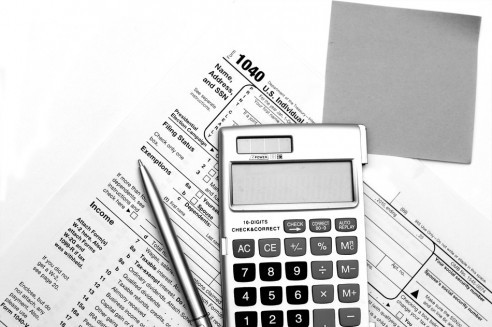Taxes for US Citizens Living In Canada
Post on: 16 Март, 2015 No Comment

Before we go ahead with the rest of the article, here’s a little introduction. My name in Allan Madan. I’m a chartered accountant and tax expert in the Oakville, Toronto and Mississauga regions of Ontario, Canada. This article is about US Citizens Living in Canada and taxes .
If you are a US citizen living in Canada, a dual citizen who has both US citizenship and Canadian citizenship, you MUST go through this article.
What Makes US Taxation Different?
The US is the only country in the world that requires you to file an income tax return based on your citizenship. All other countries in the world require you to file your tax return based on your residency, that is, where you live, and where your residential and personal ties are strongest.
There’s been a lot of media frenzy in the Toronto Star, Global Mail, National Post, and so forth, about the IRS coming after unsuspecting US citizens living in Canada for back taxes and for failure to file past due US personal tax returns. The reality is, as a US citizen you must be aware of the consequences.
In some instances, US citizens living in Canada have been bankrupted by the IRS because of the income taxes, interest, and penalty for failure to file and post by the IRS, so it’s a serious issue.
Most US citizens living in Canada will have to file, as I mentioned, a personal tax return in the United States known as 1040. But they will not have to pay Canadian income taxes. That’s because those US citizens will receive a foreign tax credit on their US personal income tax return for the Canadian back taxes paid.
Forms to File for US Citizens Living in Canada:
Here’s where it gets a little nasty. The IRS has something known as the FBAR which is a very long form that the IRS estimates takes six and a half hours to complete. FBAR stands for ‘report of foreign bank and financial accounts’. The FBAR form, which is a mandatory filing, lists all of your foreign bank accounts, foreign investment accounts, RSPs, RIFs, RESPs, and so forth.
Failure to file the FBAR return can result in a penalty of up to $10,000 per year per account. So, if you have a lot of accounts and youve never filed the FBAR return at all or for many years, you could be subject to tens of thousands of dollars in penalties.
In addition to the FBAR return and the personal income tax return, you are required to file Form 3520 for any RESPs (registered educational savings plans) that you may own for your children, or tax free savings accounts that you may own. While in Canada, TFSAs and RESPs are not subject to tax on the income earned inside, that is they are tax sheltered investments; they are subject to income taxation in the United States.
So, US citizens living in Canada who own RESPs and TFSAs have a US income tax liability potentially on those investments. They are considered foreign grantor trusts by the IRS.
How Much Do You Owe?
Practically, how long do you have to go back? The IRS says you need to go back six years to file past due US personal tax returns. Practically, from experience, three years has been sufficient for most clients. In terms of penalties, will they levy tens of thousands of dollar upon you?
The answer is it’s unlikely unless you have significant assets and you were trying to hide money in substantial amounts of investments or business income. For most clients, I’ve seen that penalties range in hundreds of dollars as opposed to thousands of dollars.
Again, if you are a US citizen it’s really important that get in touch with a tax advisor such as myself, or any other credible accountant, in order to file your past due US tax returns. And all US citizens living in Canada can feel free to get in touch with me in regards to any tax related matter.














